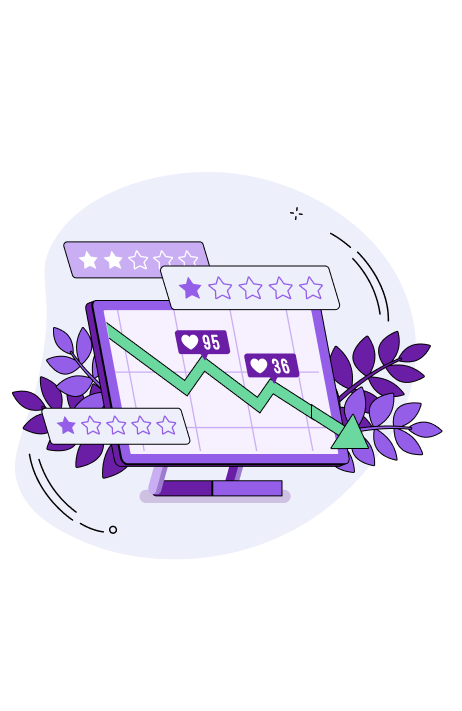
Mitigating the damage of online harassment and reputation management
Online harassment can have a remarkable impact on the well-being and reputation of content creators. It’s important for online communities to take a proactive approach to managing harassment and creating a safe and inclusive environment for all users. This can help protect the mental health and reputation of content creators, as well as promote a more positive and productive online experience for everyone.
Different types of damage that can be caused by online harassment
Online harassment can have a significant impact on content creators and their reputation. Here are some ways in which online harassment can affect content creators:
1. Emotional and psychological damage: Online harassment can have a significant impact on an individual’s emotional and psychological well-being. It can cause stress, anxiety, depression, and other mental health issues, and in some cases, lead to self-harm or suicide.
2. Physical harm: The gravity of online harassment is such that it can sometimes lead to physical harm. This may include assault or stalking, both of which can cause physical injuries and a sense of fear or vulnerability.
3. Damage to reputation: Online harassment can damage an individual’s reputation by spreading false or defamatory information about them. This can harm personal and professional relationships and make it difficult to find employment or maintain a public image.
4. Financial harm: Online harassment can result in financial harm to individuals, such as lost income due to decreased productivity, lost opportunities, or increased medical or legal expenses.
5. Damage to relationships: This type of a situation can damage personal and professional relationships, both online and offline. Moreover, it can lead to feelings of isolation, social exclusion, and a lack of trust in others which can be extremely damaging to the profession itself.
Strategies for mitigating damage caused by online harassment
Online harassment can cause significant harm to individuals, communities, and organizations, but there are several strategies that can be used to mitigate the damage caused by online harassment. Here are a few effective strategies:
1. Seek support: If you have experienced online harassment, it’s important to seek support from friends, family, or a mental health professional. This can help you cope with the emotional and psychological impact of harassment and help prevent further harm.
2. Document the harassment: It’s important to document any instances of online harassment, including saving any threatening messages or comments, taking screenshots, and recording the dates and times of the harassment. This can be useful if you decide to take legal action or report the harassment to the platform or law enforcement.
3. Report the harassment: Most social media platforms have reporting tools that allow users to report harassment. Reporting the harassment can help get the content removed and prevent further harassment.
4. Use moderation tools: If you are a content creator or moderator, use moderation tools to prevent or quickly respond to online harassment. These tools can help remove harmful content and protect your community from further harm.
5. Educate others: Educate others about the impact of online harassment and the importance of respectful online behavior. This can help prevent future incidents of online harassment.
6. Legal action: In some cases, it may be necessary to take legal action against those who engage in online harassment. This can be a last resort and may require the help of an attorney.
Tips for reputation management
Reputation management is important for individuals and organizations who want to protect and maintain their image and brand in the public eye. Here are some tips for effective reputation management:
1. Monitor your online presence: Regularly monitor your online presence, including social media accounts, search engine results, and review sites. This can help you identify any negative information or comments and respond appropriately.
2. Address negative reviews and comments: Respond to negative reviews and comments in a professional and respectful manner. This can help show that you take feedback seriously and are committed to resolving any issues.
3. Build a positive online presence: Create and share quality content that reflects your brand and values. This can help push negative content further down in search engine results and promote a positive image.
4. Utilize SEO: Utilize search engine optimization (SEO) techniques to improve your search engine rankings and visibility. This can help push negative content further down in search engine results.
5. Engage with your audience: Engage with your audience on social media and other online platforms. This can help build relationships and foster a positive reputation.
6. Work with a professional: Consider working with a professional reputation management firm to help monitor and manage your online reputation. They can provide valuable insights and expertise to help protect and improve your brand image.
Conclusion
Online harassment is a complex issue that requires a multifaceted approach to address. By taking steps to protect individuals and create a safer online environment, we can mitigate the damage caused by online harassment and promote a more just and equitable society.